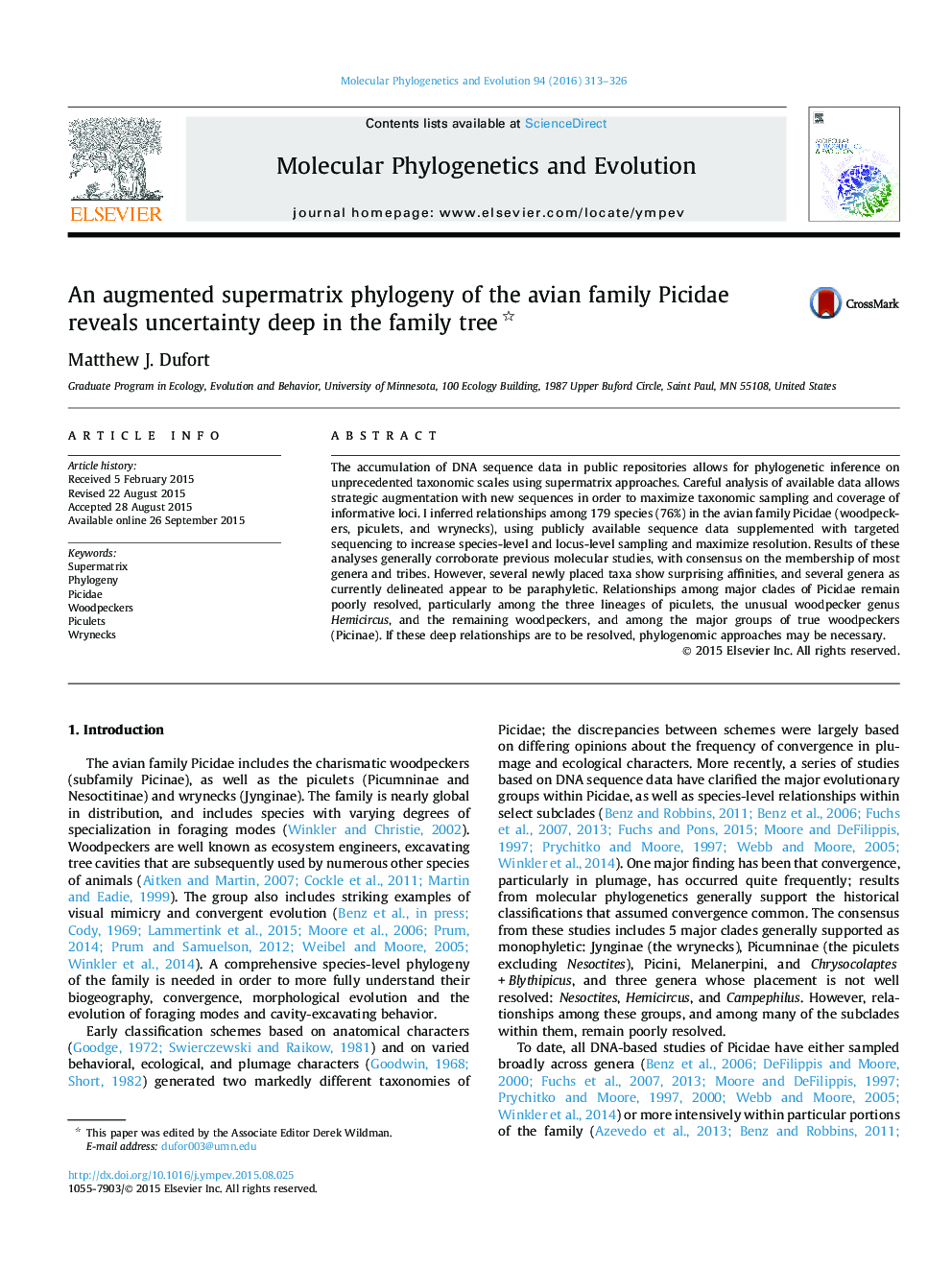| کد مقاله | کد نشریه | سال انتشار | مقاله انگلیسی | نسخه تمام متن |
|---|---|---|---|---|
| 5918736 | 1164245 | 2016 | 14 صفحه PDF | دانلود رایگان |

• I inferred relationships among Picidae using GenBank data augmented with new data.
• Relationships were insensitive to variations in analytical approaches.
• Most subfamilies, tribes, and major groups found in previous analyses were recovered.
• Resolution of basal splits remained poor, despite broad taxon and locus sampling.
• The monophyly of several current genera was called into question.
The accumulation of DNA sequence data in public repositories allows for phylogenetic inference on unprecedented taxonomic scales using supermatrix approaches. Careful analysis of available data allows strategic augmentation with new sequences in order to maximize taxonomic sampling and coverage of informative loci. I inferred relationships among 179 species (76%) in the avian family Picidae (woodpeckers, piculets, and wrynecks), using publicly available sequence data supplemented with targeted sequencing to increase species-level and locus-level sampling and maximize resolution. Results of these analyses generally corroborate previous molecular studies, with consensus on the membership of most genera and tribes. However, several newly placed taxa show surprising affinities, and several genera as currently delineated appear to be paraphyletic. Relationships among major clades of Picidae remain poorly resolved, particularly among the three lineages of piculets, the unusual woodpecker genus Hemicircus, and the remaining woodpeckers, and among the major groups of true woodpeckers (Picinae). If these deep relationships are to be resolved, phylogenomic approaches may be necessary.
Figure optionsDownload high-quality image (180 K)Download as PowerPoint slide
Journal: Molecular Phylogenetics and Evolution - Volume 94, Part A, January 2016, Pages 313–326